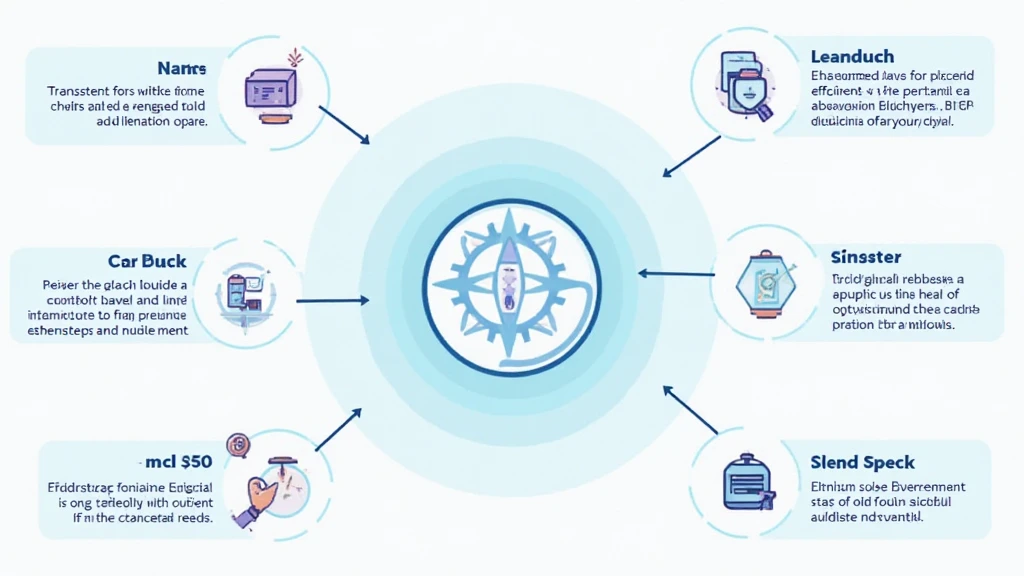Ethereum Gas Optimization Tools: Maximizing Your Blockchain Efficiency
Ethereum Gas Optimization Tools: Maximizing Your Blockchain Efficiency
With the rise of decentralized finance (DeFi) and non-fungible tokens (NFTs), Ethereum has become one of the most utilized blockchain platforms worldwide. However, did you know that users lost over $3.8 billion in Ethereum gas fees alone in 2024? Understanding the tools available for Ethereum gas optimization is crucial for both developers and users looking to save on transaction costs while ensuring efficient smart contract execution.
Understanding Gas in Ethereum
Before delving into the optimization tools, it’s important to understand what gas is. Gas in Ethereum measures the computational work required to process transactions and execute smart contracts. Each operation in the Ethereum virtual machine (EVM) requires a specific amount of gas, purchased with Ethereum (ETH). In recent years, as network activity surged, the demand for gas has seen unprecedented highs.
The Need for Gas Optimization
- Cost Reduction: High gas prices can turn profitable transactions into losses.
- Network Efficiency: Reducing gas demand contributes to overall network efficiency.
- User Experience: Lower transaction fees can enhance user adoption and satisfaction.
As a developer or user in the Ethereum ecosystem, you want to spend less and achieve more efficiency—this is where gas optimization tools prove invaluable.

Top Ethereum Gas Optimization Tools
Here are some of the leading Ethereum gas optimization tools that can significantly enhance your transaction experience.
1. Gas Tracker Tools
Gas trackers provide real-time information about gas fees on the Ethereum network. Websites like Gas Now and ETH Gas Station show average gas prices, enabling users to time their transactions for the lowest fees.
2. Gas Optimization Libraries
Utilizing libraries such as OpenZeppelin and eth-gas-reporter can assist developers in writing more efficient smart contracts. These libraries include pre-written code that follows best practices for gas efficiency.
3. Transaction Aggregators
Platforms like 1inch and ParaSwap allow users to swap tokens at the best rates while also factoring in the lowest gas fees. They aggregate data from various decentralized exchanges to find the most cost-effective options.
4. Ethereum Gas Fee Optimization Solutions
Specialized tools such as Flashbots and Gnosis Safe enable users to submit transactions that reduce gas fees by taking advantage of miner incentives and offering batch transactions.
5. Auto-Payment Optimization Tools
Tools like Zap help automate transactions, ensuring that users only perform transactions when gas prices are favorable, thus reducing unnecessary expenditure on gas fees.
Real-World Case Studies: Gas Optimization Success Stories
Let’s examine how gas optimization tools have benefited Ethereum users in the real world:
- DeFi Projects: Many DeFi projects report saving up to 30% on gas fees by adopting gas tracking tools and adjusting transaction times to off-peak hours.
- NFT Marketplaces: NFT platforms looking to optimize user transaction fees have integrated transaction aggregators, significantly improving user retention rates.
- Gaming Applications: On average, Ethereum-based games utilizing gas optimization solutions witnessed a 50% increase in user engagement.
Addressing the Challenges of Gas Optimization
While gas optimization tools provide benefits, there are challenges to be aware of:
- Market Volatility: Gas prices fluctuate based on network demand; even the best tools can’t fully alleviate this.
- Complex Integrations: Developers may face challenges integrating multiple optimization tools into existing dApps.
Nevertheless, with continued innovation in the Ethereum space, these challenges are continually being addressed.
Future Trends in Gas Optimization on Ethereum
As Ethereum evolves, so too will the tools and methodologies for gas optimization. Some upcoming trends include:
- Layer 2 Solutions: Technologies like zk-Rollups are anticipated to drastically reduce gas fees and improve transaction speeds.
- Enhanced Analytics Tools: More sophisticated gas analytics tools that forecast gas prices and suggest optimal transaction times will emerge.
Those in the Vietnamese market, where the user growth rate has reached 45% in blockchain adoption, will especially benefit from these advancements. Residents often engage in trading, leading to higher transaction fees, making optimization tools vital.
Conclusion
Ethereum gas optimization tools are essential for anyone looking to navigate the complexities of the blockchain. By utilizing tools that help in monitoring gas prices, refining smart contract code, and leveraging transaction aggregators, users can save significantly on fees while enhancing their blockchain experience. In conclusion, as the Ethereum ecosystem continues to grow, prioritizing gas efficiency through robust optimization tools can lead to greater success and satisfaction in the crypto space.
As a side note, remember to continuously evaluate and adapt your strategies to ensure you stay ahead in this rapidly evolving market.
For more information and insights, visit techcryptodigest.
Author: Dr. Nguyen Minh Tuan, a leading blockchain technologist with over 15 published papers and the auditor of various high-profile blockchain projects.





